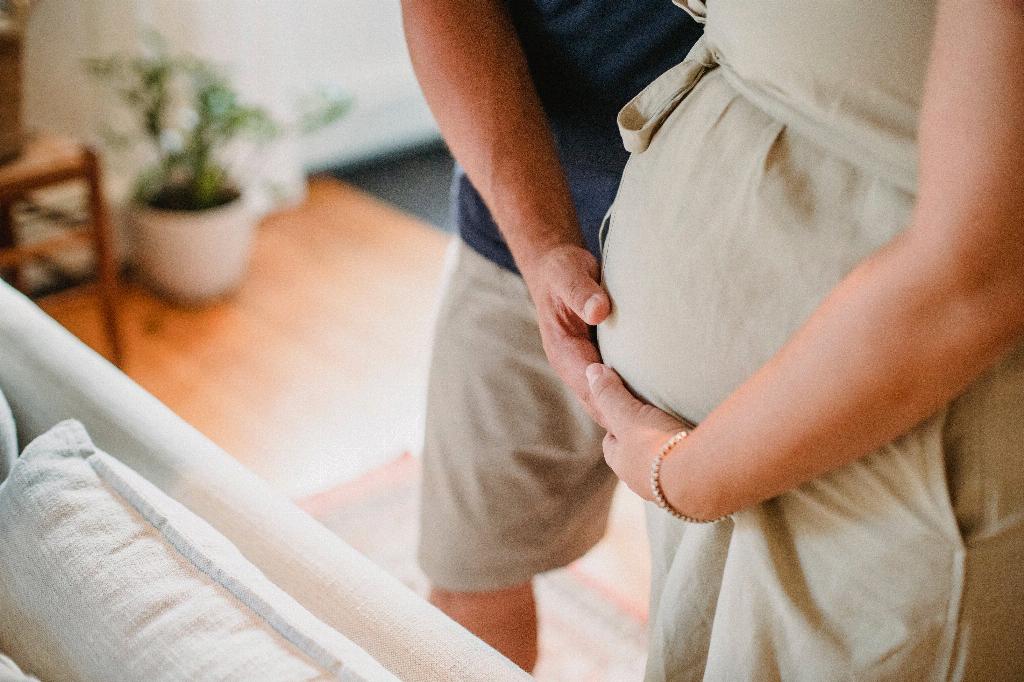Embarking on the journey of pregnancy is an exhilarating experience filled with joy, anticipation, and a myriad of bodily changes. One common phenomenon that many expecting mothers may encounter in the early stages of pregnancy is the sensation of tightness in their uterus. It can be a perplexing and sometimes alarming feeling, but rest assured, it is often a completely normal and expected occurrence.
The Physical Changes Taking Place
During early pregnancy, your body undergoes a series of remarkable transformations to prepare for the growth and development of your baby. One significant change is the expansion of your uterus as it stretches and enlarges to provide a nurturing environment for the growing fetus. The tightening sensation you may feel is often due to the muscles and ligaments in your uterus stretching and adjusting to accommodate the increasing size of your baby.
Hormonal Influences
The hormonal fluctuations that accompany pregnancy play a vital role in the changes your body undergoes. The surge of hormones, particularly progesterone, can result in the relaxation of the muscles and ligaments in your pelvic area. This relaxation allows your uterus to expand and grow, which can sometimes manifest as a sensation of tightness in your lower abdomen.
Round Ligament Pain
Another common culprit behind the tightness in your uterus during early pregnancy is round ligament pain. The round ligaments are bands of tissue that support the uterus and stretch as it grows. As these ligaments stretch and contract to accommodate your expanding uterus, you may experience sharp, shooting pains or a feeling of tightness on the sides of your abdomen.
Increased Blood Flow
As your body works diligently to support the development of your baby, your circulatory system undergoes changes to meet the increased demands of pregnancy. The heightened blood flow to your uterus and pelvic region can contribute to feelings of tightness or discomfort as your body adapts to the additional blood volume and circulation.
Emotional and Physical Considerations
Aside from the physical aspects of pregnancy, the emotional and psychological components of expecting a child can also influence how you interpret sensations in your body. The natural anxieties and excitement that accompany pregnancy can heighten your awareness of bodily changes, leading to increased sensitivity to any discomfort or unusual feelings in your uterus.
When to Seek Medical Advice
While tightness in your uterus is often a normal and expected occurrence in early pregnancy, it is essential to pay attention to your body and seek medical advice if you experience persistent or severe discomfort, sharp pains, or other concerning symptoms. Your healthcare provider can offer guidance, reassurance, and any necessary interventions to ensure the health and well-being of you and your baby.
Self-Care Strategies
Engaging in self-care practices can also help alleviate discomfort and promote relaxation during early pregnancy. Gentle exercises, such as prenatal yoga or walking, can support the muscles in your abdomen and pelvic area. Resting in a comfortable position, staying hydrated, and practicing deep breathing techniques can also provide relief from tightness and tension in your uterus.
Embracing the Journey
Amidst the physical changes and sensations that accompany early pregnancy, it is crucial to embrace the journey with patience, self-care, and a trusting attitude towards your body’s remarkable ability to nurture new life. The sensations of tightness in your uterus, while sometimes uncomfortable, are often a testament to the incredible process of pregnancy and the miraculous growth unfolding within you.
Conclusion
In conclusion, the tightness you may feel in your uterus during early pregnancy is a natural and common occurrence attributed to the physical, hormonal, and emotional changes taking place in your body. By understanding the factors contributing to this sensation and practicing self-care strategies, you can navigate this stage of pregnancy with confidence and awareness. Remember to prioritize your well-being, listen to your body, and seek support from your healthcare provider whenever needed as you embark on this transformative journey towards motherhood.

